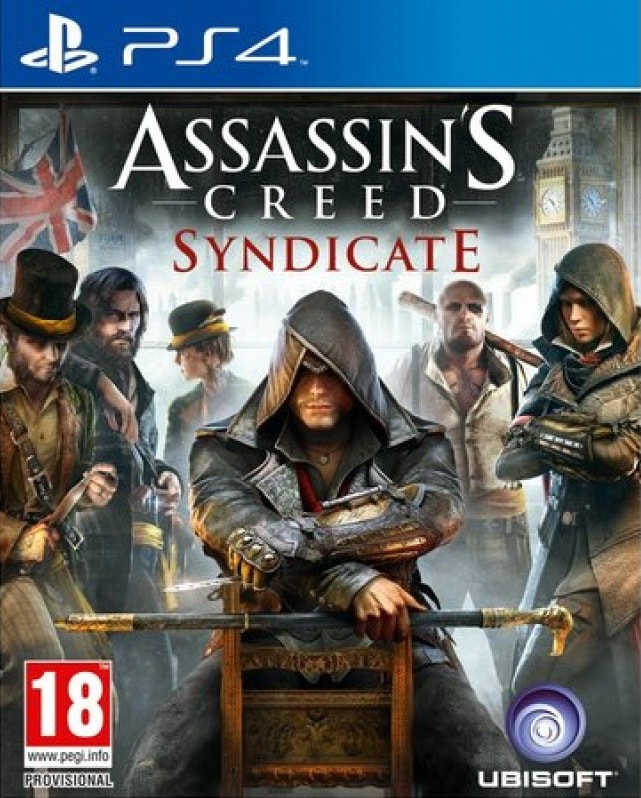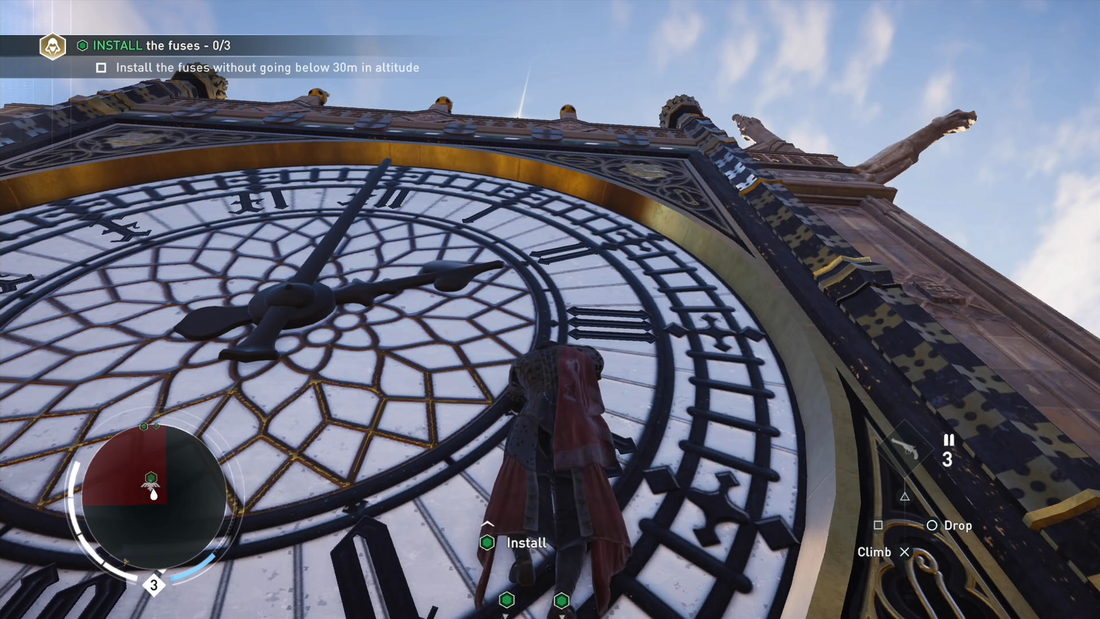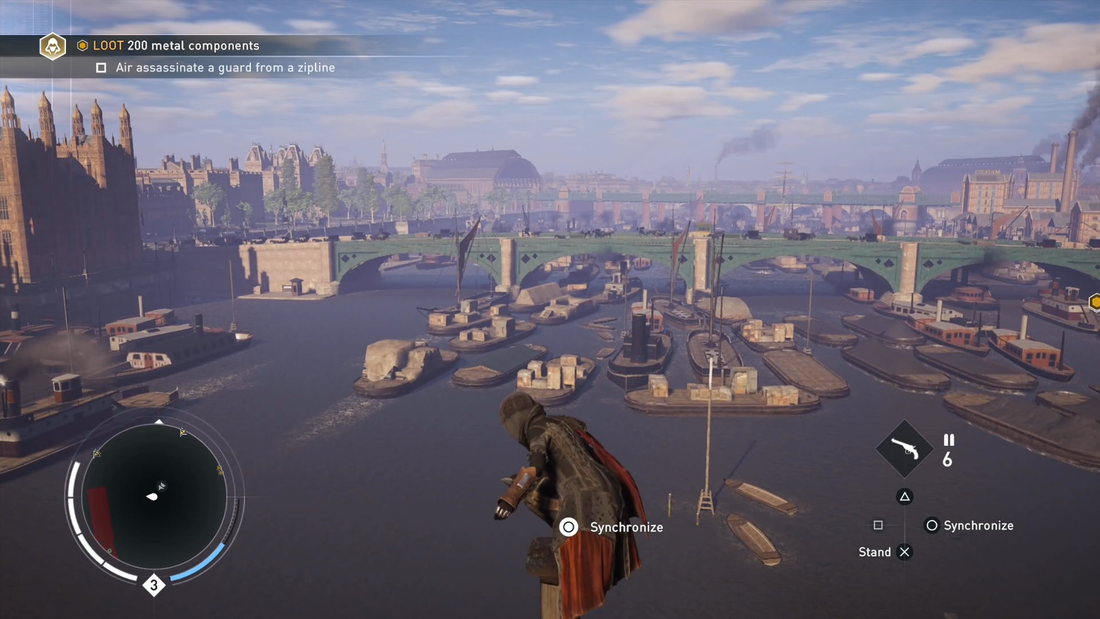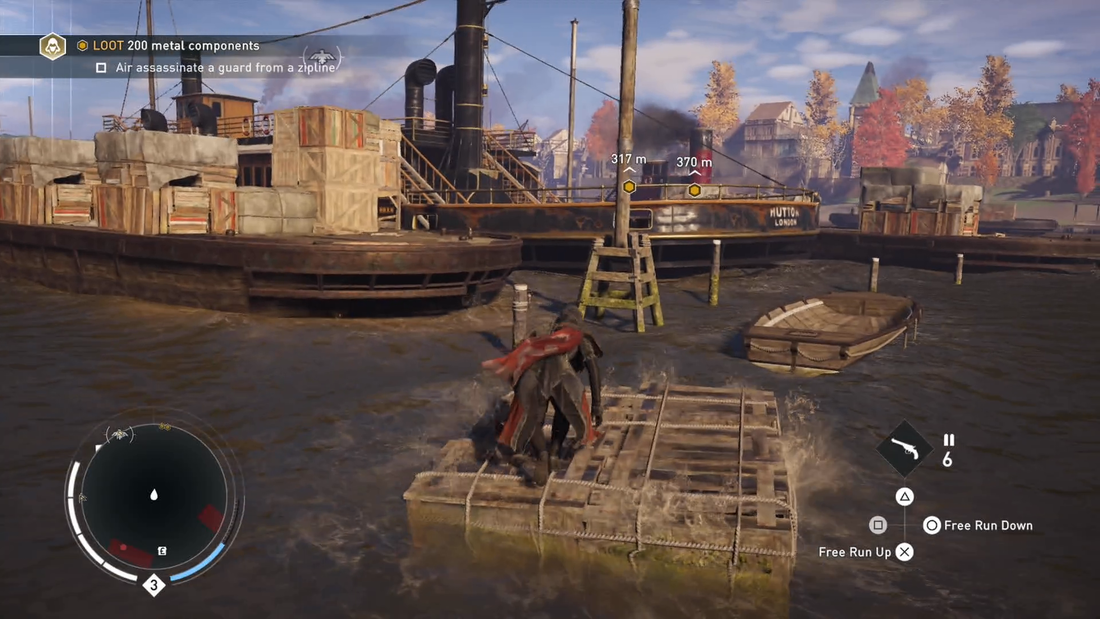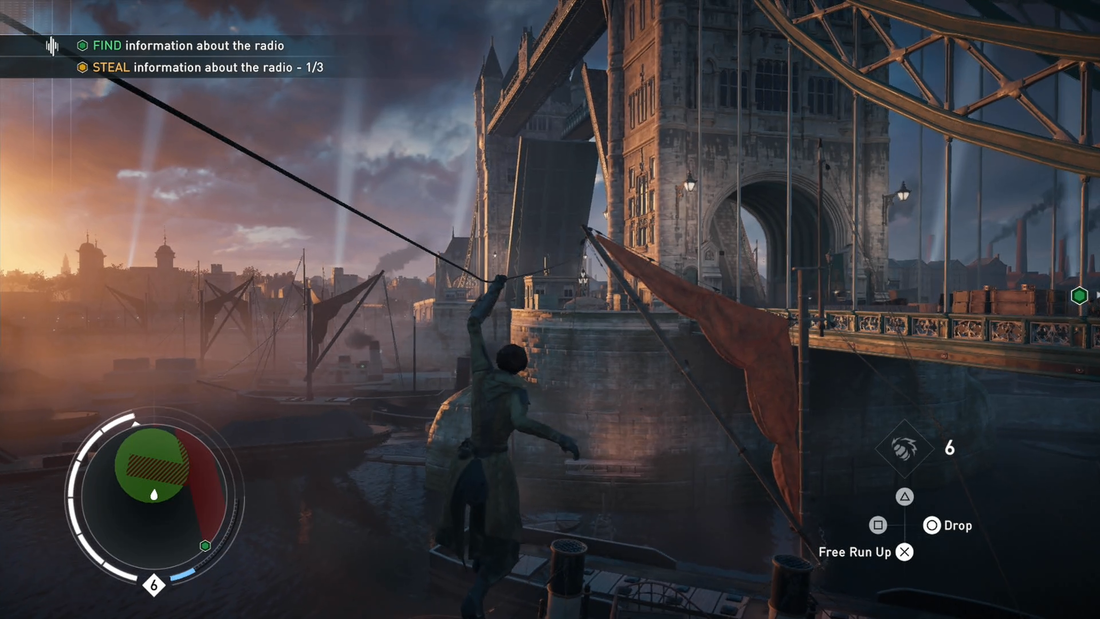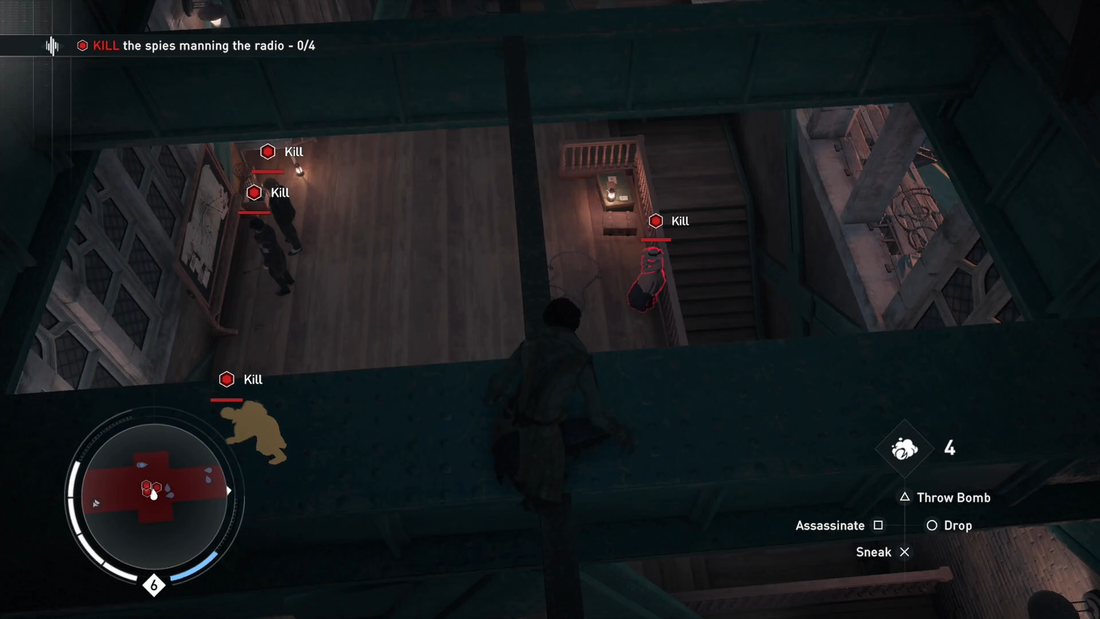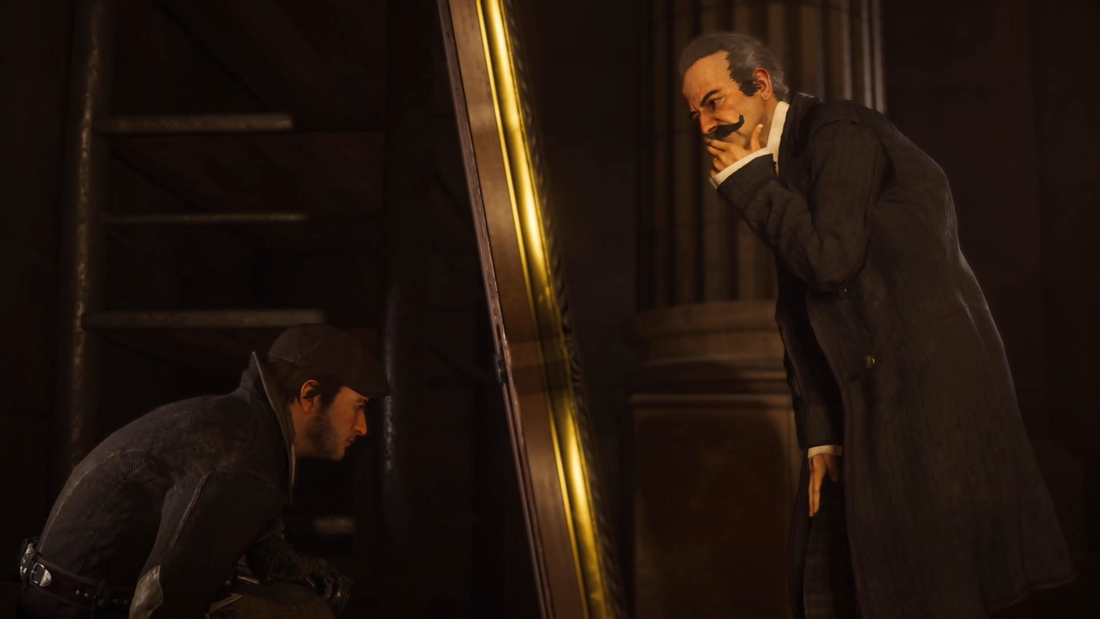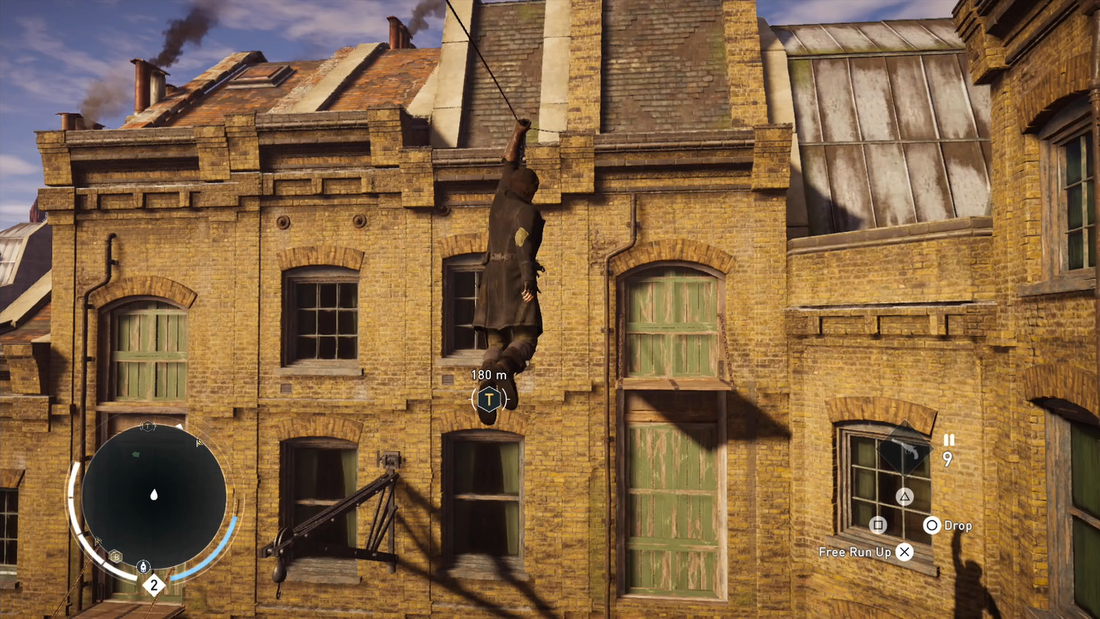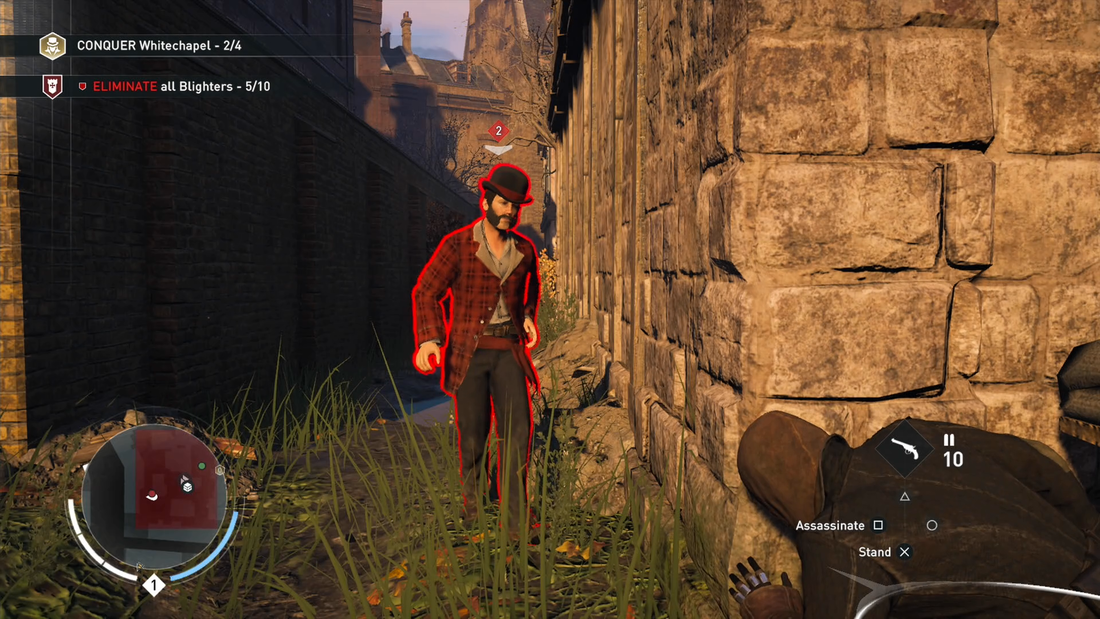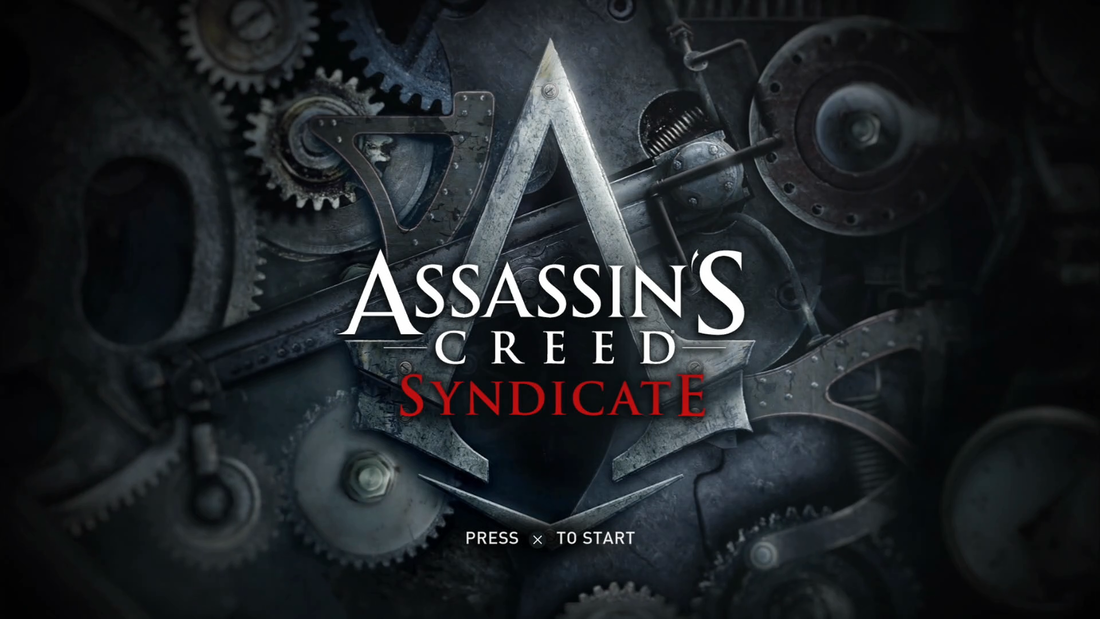ASSASSIN'S CREED SYNDICATE (PS4)
Assassin’s Creed Unity’s catastrophic, bug-riddled launch was eventually salvaged in the guise of a reasonably decent action/adventure. Nevertheless, Ubisoft was likely very wary of history repeating with its successor. Syndicate was in many ways the game they needed in 2015: a sturdier, altogether more solid endeavour that, for the most part, avoided the most glaring technical hiccups that plagued its predecessor. However, by failing to capitalise on what was easily among Assassin’s Creed’s most promising settings, Victorian-era London, Syndicate exposed a series going through the motions, in need of a reboot that it would receive in its following entry, Origins.
Familiar gameplay coupled with overly familiar issues proves the order of the day. The positives are small, measured steps. For the first time, the series allows the player to switch between two lead protagonists, siblings Jacob and Evie Fry. The pair aren’t hugely different to play as, but make for a lively clash of personalities in what is a thematically safe but enjoyable story. Perhaps the biggest highlight is London itself. The Victorian period offers a vast array of possibilities and whilst Syndicate was unlikely ever to completely fulfil its potential in this regard, there are plenty of great moments.
If you ever wondered what Big Ben looked like up close at 2pm... well, wonder no more
Scaling Big Ben is one of them, with the ability to utilise a winch to span gaps between buildings allowing for a less cramped and more realistic city layout. There’s less of a reliance on rope bridges, ledges and awkward descents. The winch needs some fine-tuning, as though the tool comes in handy, the Frys have an annoying habit of firing behind them, even when the camera is faced quite deliberately towards an obvious connection point. By some distance, the game’s finest location is the Thames. Arriving amidst a generation where open-world finery and busy surroundings are no longer unusual, the river delivers a genuinely breathtaking visage. The barge-filled waterway makes for a truly remarkable sight, chocked full of activity as far as the eye can see and even housing some heist missions where the player can steal cargo.
Whilst a lot of the exploration treads the same ground as Unity, Syndicate does produce some fun side-missions. Train hijacks provide good old-fashioned fun, whilst slave rescues see the player practising their stealth tactics, as they aim to free children from factories without rousing the attention of the owners. Kidnapping Templars adds a nice spin on the assassination missions, rewarding the player for marching them away from their allies and bundling them into a carriage.
Whilst a lot of the exploration treads the same ground as Unity, Syndicate does produce some fun side-missions. Train hijacks provide good old-fashioned fun, whilst slave rescues see the player practising their stealth tactics, as they aim to free children from factories without rousing the attention of the owners. Kidnapping Templars adds a nice spin on the assassination missions, rewarding the player for marching them away from their allies and bundling them into a carriage.
The various fight clubs show off the game’s simple but solid combat engine, with a host of excellent attacks, counters and finishers. The horse-and-carriage street races aren’t great though. They lack pace and excitement and are afflicted by some of the most blatant rubber-banding you’ll ever see.
As has periodically been the case with Assassin’s Creed sequels, you’ll find some unique blips mixed with lingering issues. One particularly strange oversight concerns the two central characters having to equip new weapons independently of one another. This wouldn’t be a major problem, except that when the player travels on the train that acts as a hub for (among other things) changing weapons and equipment, you cannot switch between the siblings without leaping off. The lack of non-lethal takedowns is a bizarre omission, considering it was firmly rooted in Unity’s combat system, and despite the listing of a lethality rating (separate from its attack power) for each weapon. Again, this would not be an issue, except that some synchronicity-related objectives that require the player avoids killing any enemies or policemen. The only successful means of non-lethal incapacitation is a choke-hold from behind, but should your character be spotted, the only option is to escape.
As has periodically been the case with Assassin’s Creed sequels, you’ll find some unique blips mixed with lingering issues. One particularly strange oversight concerns the two central characters having to equip new weapons independently of one another. This wouldn’t be a major problem, except that when the player travels on the train that acts as a hub for (among other things) changing weapons and equipment, you cannot switch between the siblings without leaping off. The lack of non-lethal takedowns is a bizarre omission, considering it was firmly rooted in Unity’s combat system, and despite the listing of a lethality rating (separate from its attack power) for each weapon. Again, this would not be an issue, except that some synchronicity-related objectives that require the player avoids killing any enemies or policemen. The only successful means of non-lethal incapacitation is a choke-hold from behind, but should your character be spotted, the only option is to escape.
Syndicate pays a brief visit to World War I, with a small handful of missions proving a neat change of pace and scenery
As has periodically been the case with Assassin’s Creed sequels, you’ll find some unique blips mixed with lingering issues. One particularly strange oversight concerns the two central characters having to equip new weapons independently of one another. This wouldn’t be a major problem, except that when the player travels on the train that acts as a hub for (among other things) changing weapons and equipment, you cannot switch between the siblings without leaping off. The lack of non-lethal takedowns is a bizarre omission, considering it was firmly rooted in Unity’s combat system, and despite the listing of a lethality rating (separate from its attack power) for each weapon. Again, this would not be an issue, except that some synchronicity-related objectives that require the player avoids killing any enemies or policemen. The only successful means of non-lethal incapacitation is a choke-hold from behind, but should your character be spotted, the only option is to escape.
The platforming is solid enough but a little sticky-feeling and laboured at times. There are so many permutations and possibilities within the environment, that it’s still extremely common for your character to botch things up, welding themselves to a lamppost as a thief escapes on foot. Police and gangs are as twitchy as ever, regularly instigating mass scuffles when you’re doing nothing more than standing still.
The platforming is solid enough but a little sticky-feeling and laboured at times. There are so many permutations and possibilities within the environment, that it’s still extremely common for your character to botch things up, welding themselves to a lamppost as a thief escapes on foot. Police and gangs are as twitchy as ever, regularly instigating mass scuffles when you’re doing nothing more than standing still.
Syndicate’s best ideas come to fruition during key assassination missions. Seemingly taking a leaf from Hitman’s blueprint, these missions allow the player to pursue different approaches to achieving the goal. It may be that you need to isolate a key figure either to steal a key, learn of security weaknesses, or create a diversion. There are some marvellously creative “unique kills” too and these are satisfying to engineer.
The game also looks great, retaining and building upon the atmospheric environmental touches of Unity. Yes, it still has its fair share of quirks and foibles, the environment is vast and the quantity of NPCs encountered is remarkable. Coordinating credible crowd behaviour when the player storms around causing a ruckus remains a tough ask. You’ll find violinists, pedlars and shoe shiners on the streets, gents playing cricket on the village greens and workers busying away in the factories. Whilst the platforming has evolved relatively modestly, Ubisoft deserves some credit for improved structuring. The game no longer features multiplayer, an aspect that has for so long sat uneasily with the Assassin’s Creed experience. Instead, we get an impressive, mini-campaign set during the First World War. This a really evocative location and one that offers enough content to add a good few hours to the runtime.
The game also looks great, retaining and building upon the atmospheric environmental touches of Unity. Yes, it still has its fair share of quirks and foibles, the environment is vast and the quantity of NPCs encountered is remarkable. Coordinating credible crowd behaviour when the player storms around causing a ruckus remains a tough ask. You’ll find violinists, pedlars and shoe shiners on the streets, gents playing cricket on the village greens and workers busying away in the factories. Whilst the platforming has evolved relatively modestly, Ubisoft deserves some credit for improved structuring. The game no longer features multiplayer, an aspect that has for so long sat uneasily with the Assassin’s Creed experience. Instead, we get an impressive, mini-campaign set during the First World War. This a really evocative location and one that offers enough content to add a good few hours to the runtime.
As for long-term play, there’s likely fifty hours worth if you are committed to chasing the platinum trophy. This is a relatively enjoyable endeavour, save for a couple of poor ones that require a rinse-and-repeat of various specific moves and a trophy for smashing 5000 pieces of scenery in a carriage, which feels like a waste of time. Still, as well as being dozens of mostly very enjoyable main missions, there are some bonus ones unlocked at the game’s conclusion courtesy of Queen Victoria, which makes for a nice bonus. Assassin’s Creed Syndicate is another strong outing for its enduring series, but one that retreads old ground more than might have been expected. In terms of its series, Syndicate sits somewhere in the middle: not its finest moment, nor its low point. Fans will enjoy it, those unhappy with Unity might be better served jumping ahead to Origins.
MORE ASSASSIN'S CREED GAME REVIEWS
